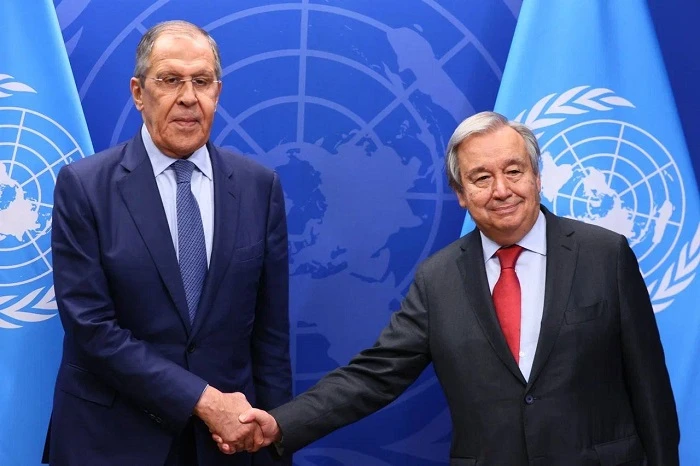Making it clear that the Russian fertilizers should reach farmers at a reasonable cost and on to fields all over the world as soon as possible, United Nations Secretary-General Antonio Guterres has said that it is essential that all countries remove “every remaining obstacle” to its export.
The UN chief, who has also warned that the world may run out of food next year if the fertilizer market is not stabilized, made the comments during a busy Thursday at the organisation’s headquarters in New York where he met with several leaders to find solutions to the world’s food, debt, and energy crisis due to the ongoing conflict in Ukraine.
It also included a meeting with Russian Foreign Minister Sergei Lavrov on the sidelines of the general political discussion of the 77th session of the UN General Assembly.
Guterres, in a Security Council meeting on Ukraine on Thursday, said that the collateral damage of the Russia-Ukraine war, which is driving millions into extreme poverty and hunger and reversing years of progress on development, is being felt in dozens of developing countries already grappling with recovery from the Covid-19 pandemic and battered by the climate crisis.
According to the UN, more than 4.3 million metric tonnes of food shipments bound for 29 countries across three continents have been moved since the signing of the Black Sea Grain Initiative. This, said Guterres, includes three vessels chartered by the World Food Progamme (WFP) to transport desperately needed food supplies for the people of Afghanistan, the Horn of Africa, and Yemen.
“The United Nations also signed a memorandum of understanding with the Russian Federation on the full access of Russian food and fertilizer products, including ammonia, to global markets. We are doing everything possible to facilitate this, and to ease the serious fertilizer market crunch that is already affecting farming in West Africa and elsewhere,” the UN Secretary-General told the Security Council.
Russia, which has repeatedly expressed doubts about the effectiveness of the Black Sea Grain Initiative it signed on July 22, has been urging the parties involved to ensure that the package is implemented in its full nature with unhindered export of Russian agricultural products and fertilizers to the world markets.
Moscow has alleged that the cargo vessels leaving the three key Ukrainian ports in the Black Sea – Odesa, Chernomorsk, and Yuzhny – have failed to supply grain to the starving countries of Africa or South Asia.
“As a result of the food deal, planned as an instrument of emergency support for the poorest countries, only 3% (60 thousand tonnes of two million tonnes of grain) was sent to developing countries,” Russian Deputy Foreign Minister Sergei Vershinin said at the Meeting of Foreign Ministers of the Group of Friends of the Global Development Initiative on Wednesday.
Also Read: Russia raises doubts over Black Sea Grain deal citing Lebanon fiasco




















